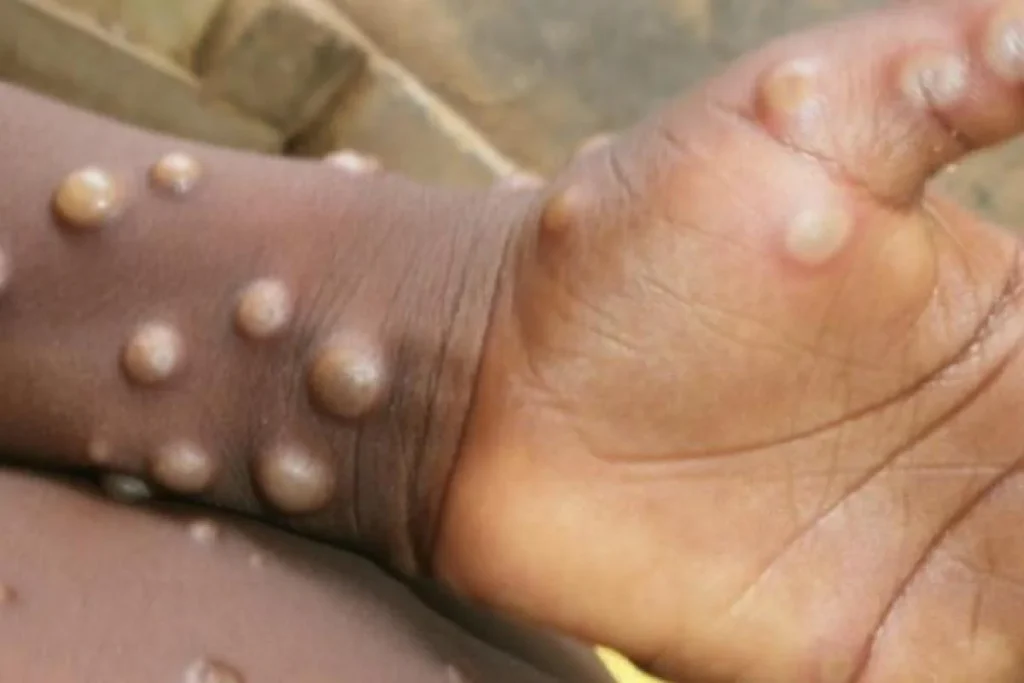
The Africa Centres for Disease Control and Prevention (Africa CDC) has raised the alarm over the continent’s mounting public health emergencies, as outbreaks of Mpox, cholera and climate-related disasters continue to strain fragile health systems across multiple countries.
The Africa CDC highlighted Uganda, the Democratic Republic of Congo (DRC) and Burundi as epicentres of the escalating Mpox crisis, while climate shocks and disease outbreaks compound the situation in many parts of the continent.
Director-general of the Africa CDC, Dr. Jean Kaseya made this known on Thursday during the agency’s weekly media briefing. He disclosed that Uganda alone has accounted for half of Africa’s Mpox cases over the past six weeks. According to him, the country has vaccinated over 20,000 people in a single week following the delivery of 100,000 Mpox vaccine doses. However, he acknowledged that major challenges remain in active case search, contact tracing and follow-up, particularly within sexual networks that are fuelling the outbreak.
“We are amid multiple, layered health emergencies. Uganda is battling a surging Mpox outbreak, while floods, cholera, and other epidemics are testing the limits of Africa’s preparedness. We must invest in resilient health systems, empower our National Public Health Institutes, and rethink how we finance health in Africa,” Kaseya urged.
He reported that the continent has recorded 117,678 suspected and 26,927 confirmed Mpox cases since 2024. More than one million doses of the Mpox MVA-BN vaccine have been mobilised and shipped to 10 African countries. Yet, testing gaps persist, with fewer than half of suspected cases undergoing laboratory confirmation.
Kaseya revealed that a socio-behavioural study is underway to better understand Mpox transmission dynamics, especially in urban slums and semi-urban communities like Mbarara City and Masaka City in Uganda.
Beyond Mpox, Kaseya expressed concern over the worsening cholera outbreaks, particularly in Angola and South Sudan, fueled by climate shocks such as flooding and cross-border insecurity. Angola has reported 10,949 cases and 408 deaths as of April 2025, while South Sudan has recorded 18,624 cases and 397 deaths this year alone. In the DRC, recent torrential rains have submerged health centres, disrupted water and power supply and displaced thousands of people, compounding the public health crisis.
The Africa CDC warned that climate-related hazards are accelerating Africa’s vulnerability to infectious diseases. In response, the agency is implementing a new strategy titled “Rethinking African Health Financing in a New Era”, which advocates for domestic health financing reforms, innovative financing models and impact-driven utilisation of funds free from corruption.
Kaseya emphasised the need for urgent action, stating, “We are grateful for the solidarity of our partners in vaccine delivery, but this is not enough. We must act now to remove bottlenecks, strengthen laboratory networks and decentralise testing and care. Africa’s health cannot wait.”
As Africa looks ahead, the focus is shifting beyond emergency responses to building resilient, self-sufficient health systems capable of withstanding future pandemics, climate disasters, and economic shocks. Science Nigeria reports that these efforts are critical to ensuring long-term health security for the continent.
The World Health Organisation (WHO) declared Mpox a global public health emergency in August 2024, for the second consecutive year, following the spread of a new variant from the DRC to neighbouring countries. Mpox, a viral infection transmitted through close contact, has already resulted in more than 59,000 reported cases and 1,164 deaths across 20 African countries in 2024 alone.

